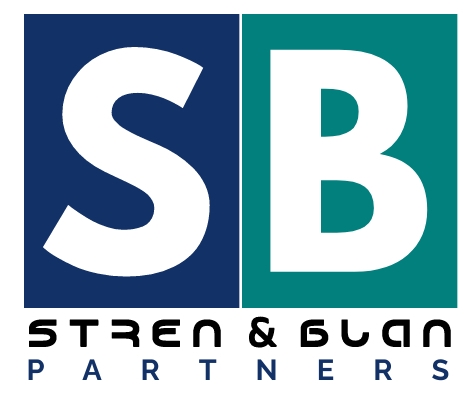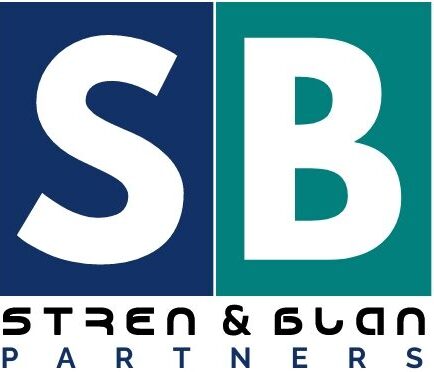UNDERSTANDING FRANCHISING A MODEL FOR BUSINESS GROWTH
INTRODUCTION
In the realm of business expansion, franchising stands as a beacon of opportunity, offering a unique model that fosters growth, innovation, and sustainability with reduced risk. A franchise is a licensing arrangement wherein a franchisee gains access to a franchisor’s exclusive business expertise, methodologies, and trademarks in exchange for adherence to established standards and financial returns which could be in the form of a fee and royalties. This access enables the franchisee to market and sell products or services using the franchisor’s brand name. This business model can be adopted where a business intends to break into a new market without major capital investment.
The legal agreement between the two parties is termed the “Franchise Agreement”. The term “franchise” commonly refers to the business operated by the franchisee. The process of establishing and distributing the brand and franchise system is typically known as franchising.
The success of franchising ventures as a means of business development hinges not only on strategic vision and operational prowess but also on navigating various regulations and laws positioned to regulate the concept of franchising. In this article, we will discuss franchising as a potent catalyst for business growth, with a focus on the regulatory framework offranchising ventures in Nigeria.
THE MODELS AND SUCCESS METRICS OF FRANCHISING IN NIGERIA
In Nigeria, franchising encompasses various types and models including investment, job, master, and business format franchising. Investment franchises require substantial capital and may involve active management by the franchisor, while job franchises entail lower investments and operate as sole proprietorships. Also, master franchising involves granting rights to a master franchisee to operate in a given area who can then sub-franchise, and as for the business format franchising model, it offers extensive support beyond authorization to sell goods or services including access to the franchiser’s designs, quality control measures, operational procedures, group advertising initiatives, and promotional activities.
Notably, franchising has continued to gain significant traction in Nigeria allowing both established foreign and local Companies to expand their business operation with several successful examples such as Shoprite, Spar, Kentucky Fried Chicken, Chicken Republic, Domino’s Pizza, and a lot more.
Nigeria, with a population of approximately 226 million people presents a potential growth opportunity for investors. Despite the country’s high inflation rate, there is an expanding consumer class with increasing purchasing power. According to a report by Euromonitor International, it is projected that by 2030, 160 million Nigerians will have sufficient income for discretionary spending, and sales of consumer goods are estimated to triple by then to USD365,548.4 million resulting in a significant increase in consumer goods sales and as the Nigerian government explores mass opportunities for its unemployed citizens and seeks non-oil revenues, the time is ripe for reputable foreign franchisors with solid brands to expand their operations in Nigeria, also, the government is taking steps to improve the business environment which willbenefit franchises, measures such as the enactment of the Business Facilitation Act, 2023 aims to enhance business operations in Nigeria, fostering transparency, efficiency, and productivity.
Additionally, the commercial guide from the International Trade Administration reveals that quick service restaurants (QSRs) and fast-food operations dominate Nigeria’s franchising scene, comprising 45% of franchises. South African and U.S. companies are the largest owners of franchise operations in Nigeria. Moreover, the global franchising market is rapidly growing, expected to reach $750 billion by 2025, with international franchise brands increasing by 22% in the last five years according to a statistics report by Market Splash.
Succinctly, Nigeria provides a promising environment for franchising due to its growing consumer class, supportive government policies, and expanding global market opportunities, enabling franchises to expand their market share and operations. To establish a successful franchise in Nigeria, it is crucial to register the business with relevant authorities like the Corporate Affairs Commission, register the Franchise Agreement with the National Office for Technology Acquisition Promotion, register the trademark, and obtain industry-specific permits.
LEGAL FRAMEWORK FOR FRANCHISING IN NIGERIA
There is no specific legislation dedicated solely to the offer and sale of franchise in Nigeria. However, there are existing laws that regulate franchising operations and practices which include:
The NOTAP Act aims to safeguard Nigerian franchisees from potential exploitation by franchisors by laying out comprehensive regulations governing the terms and conditions permissible in franchise agreements. These regulations are designed to promote the registration of franchise agreements with NOTAP, particularly those that genuinely contribute to strengthening local manufacturing capabilities. This includes prohibiting onerous conditions that disadvantage franchisees, ensuring equitable payments, and limiting the duration of franchise agreements to prevent excessive control by franchisors. Franchise agreements must meet certain criteria to be eligible for registration with NOTAP, such as providing long-term benefits to the franchisee and aligning with Nigeria’s economic development goals.
Notably, it is important to register the franchiseagreement with NOTAP as the NOTAP Act provides that payments to parties outside Nigeria for technology transfer agreements cannot be made without presenting a registration certificate issued by NOTAP. This has also been reiterated in a Court of Appeal case between Stanbic IBTC Holding Plc v. Financial Reporting Council of Nigeria (FRCN) & Anor (2018) LPELR-46507(CA), where the court emphasized that non-registration of a Franchise Agreement with NOTAP does not nullify the agreement but prevents parties in Nigeria from fulfilling payment obligations through authorized channels. In essence, non-registration with NOTAP restricts access to official foreign exchange markets, impacting the ability to repatriate fees/funds under the agreement or leading to higher exchange rates from alternative sources.
The franchisor must also provide a statement of material changes, if any occurs, and register the disclosure document with NOTAP. The Bill allows a 7-day opt-out period for franchisees to terminate the agreement and receive refunds, with exceptions for certain franchise arrangements. Additionally, the Bill designates NOTAP as the regulatory body responsible for all matters addressed contemplated in the Bill.
Furthermore, the Bill seeks to control the relationship between franchisors and franchisees to promote a franchise system that boosts Nigeria’s economy. All franchisors and franchisees operating in Nigeria including those involving non-Nigerian Franchisors are required under the Bill to abide by its rules and any restrictions that may be imposed. The Bill also imposes restrictions on franchisee businesses similar to the franchisor’s during the agreement, limited to a maximum duration of 5 years. Furthermore, the Bill mandates the registration of all proprietary rights linked to foreign business franchises licensed to franchisees in Nigeria, encompassing patents, trademarks, industrial designs, etc. It also necessitates the registration of all franchise agreements between Nigerian franchisees and foreign franchisors. The Bill incorporates the liability for non-compliance, including fines and imprisonment, signaling stricter enforcement by NOTAP.
Undoubtedly, the Franchise Bill is a positive development for the franchising industry in Nigeria. If passed into law, it will provide a legal framework for the growth of franchising in Nigeria and protect the rights of franchisees and franchisors. However, some sections of the Bill need clarification, such as the definition of an “associate as without clearer definitions and guidelines, the Bill may lead to legal disputes and uncertainties, requiring extensive judicial interpretation for clarification.
CONCLUSION
Franchising, viewed as a strategic partnership, offers significant opportunities for enhancing economic growth by fostering local entrepreneurial skills, promoting indigenous economic activities, and curbing the outflow of capital. As such, it warrants institutional backing and support to thrive effectively. Looking ahead, the impending Franchising Bill presents an opportunity to further strengthen the legal framework for franchising in Nigeria. By proactively addressing regulatory gaps and promoting best practices, the Franchising Bill can foster a conducive environment for franchising growth and investment in the country.
Pending the passage of the Franchising Bill, parties entering into a franchise agreement in Nigeria, to protect their interestsmust take appropriate measures to ensure compliance with existing laws and incorporate standard practices into their agreement. These include the need for disclosure, precise terms in the agreement regarding fees and territory rights, protection of intellectual property, adherence to legal requirements, setting up procedures for resolving disputes and developing exit plans, and consulting an independent lawyer for direction and risk assessment.

